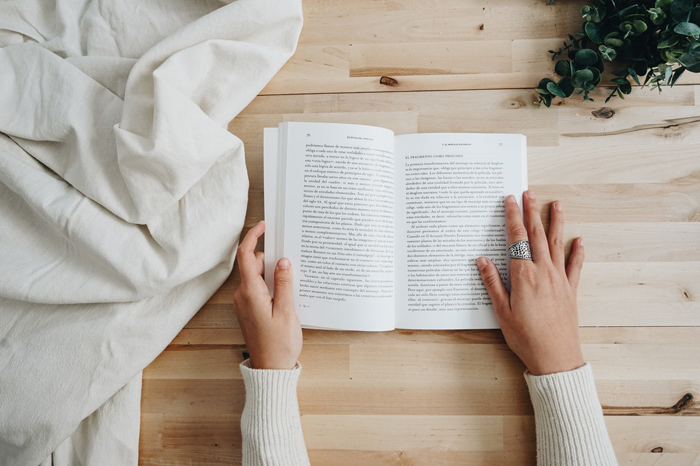
| 双语新闻 Bilingual News | 双语对照阅读 分级系列阅读 智能辅助阅读 在线英语学习 |

| 双语新闻 Bilingual News | 双语对照阅读 分级系列阅读 智能辅助阅读 在线英语学习 |
| [英文] [中文] [双语对照] [双语交替] [] |

| 1. READ BOOKS FROM ERAS PAST // ALBERT EINSTEIN |
| Keeping up with current events and the latest buzz-worthy book from the bestseller list is no small feat, but Albert Einstein thought it was vital to leave some room for older works, too. Otherwise, you’d be “completely dependent on the prejudices and fashions of [your] times,” he wrote in a 1952 journal article. |
| "Somebody who reads only newspapers and at best books of contemporary authors looks to me like an extremely near-sighted person who scorns eyeglasses,” he wrote. |
| 2. DON’T JUMP TOO QUICKLY FROM BOOK TO BOOK // SENECA |
| Seneca the Younger, a first-century Roman Stoic philosopher and trusted advisor of Emperor Nero, believed that reading too wide a variety in too short a time would keep the teachings from leaving a lasting impression on you. “You must linger among a limited number of master thinkers, and digest their works, if you would derive ideas which shall win firm hold in your mind,” he wrote in a letter to Roman writer Lucilius. |
 |
| 3. SHOP AT SECONDHAND BOOKSTORES // VIRGINIA WOOLF |
| In her essay “Street Haunting,” Virginia Woolf described the merits of shopping in secondhand bookstores, where the works “have come together in vast flocks of variegated feather, and have a charm which the domesticated volumes of the library lack.” |
| According to Woolf, browsing through used books gives you the chance to stumble upon something that wouldn’t have risen to the attention of librarians and booksellers, who are often much more selective in curating their collections than secondhand bookstore owners. |
| 4. YOU CAN SKIP OUTDATED SCIENTIFIC WORKS, BUT NOT OLD LITERATURE // EDWARD BULWER-LYTTON |
| 19th-century British novelist and Parliamentarian Edward Bulwer-Lytton was a firm believer in the value of reading old literature. |
| "In science, read, by preference, the newest works; in literature, the oldest,” he wrote in his 1863 essay collection, Caxtoniana. “The classic literature is always modern. New books revive and redecorate old ideas; old books suggest and invigorate new ideas.” |
 |
| 5. CHECK OUT AUTHORS’ READING LISTS FOR BOOK RECOMMENDATIONS // MORTIMER J. ADLER |
| In his 1940 guide How to Read a Book, American philosopher Mortimer J. Adler talked about the importance of choosing books that other authors consider worth reading. “The great authors were great readers,” he explained, “and one way to understand them is to read the books they read.” |
| 6. YOU GET TO MAKE THE FINAL DECISION ON HOW, WHAT, AND WHEN TO READ // THEODORE ROOSEVELT |
| Theodore Roosevelt rejected the idea that there’s a definitive “best books” list that everyone should abide by. Instead, Roosevelt recommended choosing books on subjects that interest you and letting your mood guide you to your next great read. He also wasn’t one to roll his eyes at a happy ending, explaining that “there are enough horror and grimness and sordid squalor in real life with which an active man has to grapple.” |
OK阅读网 版权所有(C)2017 | 联系我们